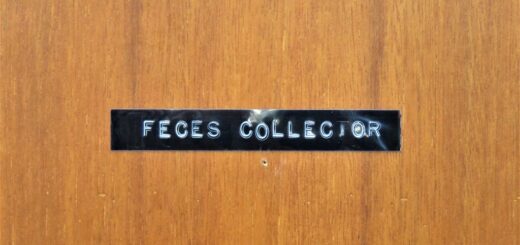Retelling Nineteen Eighty-Four From The Totalitarian Perspective
I see that the estate of George Orwell, apparently related to its namesake’s legacy roughly as Nietzsche’s sister Elizabeth was related to his, has given its official stamp of approval to a feminist retelling of Nineteen Eighty-Four. Though the new story will allegedly present Orwell’s dystopia from the perspective of Julia, Winston’s love interest in the original, the explicit emphasis on the “feminist” angle ensures that this book is intended to throw the true essence of Orwell’s dire anti-totalitarian warning down the memory hole.
“Two of the unanswered questions in Orwell’s novel are what Julia sees in Winston, and how she has navigated her way through the party hierarchy. Sandra [Newman, the author of the new book] gets under the skin of Big Brother’s world in a completely convincing way which is both true to the original but also gives a dramatically different narrative to stand alongside the original,” Orwell’s estate’s literary executor Bill Hamilton said to The Guardian.” The millions of readers who have been brought up with Orwell’s Nineteen Eighty-Four will find this a provocative and satisfying companion.”
Orwell’s defining literary achievement needs a “provocative and satisfying companion” to “stand alongside” his original, apparently. The estate might as well have ordered a retelling of the novel from the perspective of O’Brien, the agent of the Inner Party, focusing on the Party’s progressive efforts to protect the citizens of Oceania from the emerging threat of a patriarchal, white supremacist, and anti-collective Brotherhood.
For Orwell’s novel is, of course, primarily an attack on totalitarian Marxism. But feminism is totalitarian Marxism in one of its preeminent latter-day iterations. (See Part I of my series on “Female Marxism” here.) Feminism is an official truth, a doctrinaire, indisputable, state-sanctioned “two-plus-two-equals-five” challenge and threat to all historical alternatives and moral complexities. It is a denial of womanhood posing as a new definition of woman, a rejection of the feminine nature in favor of a forced politicization of “identity.” It stands allied with the state and its coercive authority, against the “traditional family” and the free individual. In the name of “equality,” it promotes the reduction of all human beings to interchangeable worker units and flat-souled servants of materialist progressive orthodoxy. It is, in its sources and at its artificial heart, one facet of the Marxist propaganda of systemic oppression and historical injustice which forever seeks to repudiate so-called “Western civilization,” rewriting its ideas and rejecting its virtues and achievements by means of elaborate re-education models that filter the entire past through the distorting lens of present-day trends in academic Marxist theory.
In other words, feminism, properly understood, belongs to the world of The Party. By sanctioning and even actively encouraging a feminist update of Nineteen Eighty-Four, Orwell’s estate is attempting to subject Orwell’s own anti-totalitarian vision to a Dewey-esque revision, i.e., to present or preserve an older important book on the human experience as little more than a useful precursor or antecedent to our later, superior stage in the progress of the race toward the perfect industrial collective. That is, Orwell’s estate hopes to force us to reinterpret a famous work on the dangers of totalitarianism as a worthy but ultimately incomplete and unsatisfactory step on the journey toward a more advanced and enlightened form of collectivist totalitarianism.
A word to Orwell’s estate: Orwell’s book is kind of all about the danger of cleaving to political orthodoxy in language and thinking, and was sort of intended to offend orthodox Marxist sensibilities. I guess you missed that.



